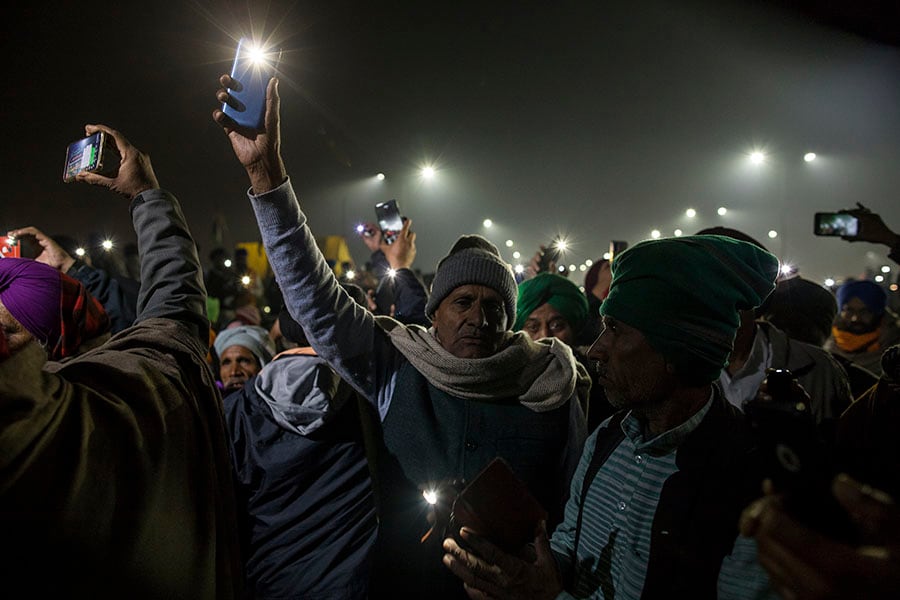
Will Twitter, under 'free speech absolutist' Elon Musk, dig in, in India?
Musk has plans to offer Tesla cars and Starlink satellite-based internet services in India, where Twitter has its third-largest user base
 A file photo of farmers on a vigil remembering the farmers who lost their lives during the protests at Ghaziabad border, India. The government ordered Twitter to block 1474 accounts and 175 tweets to be blocked, under India’s Information Technology Act of 2000, according to MediaNama. The tweets, from February 2021 to February 2022, reportedly were those that were critical of the government’s handling of a massive farmers’ protest in north India, and its response to the Covid crisis in the country.
Image: Anindito Mukherjee/Getty Images
A file photo of farmers on a vigil remembering the farmers who lost their lives during the protests at Ghaziabad border, India. The government ordered Twitter to block 1474 accounts and 175 tweets to be blocked, under India’s Information Technology Act of 2000, according to MediaNama. The tweets, from February 2021 to February 2022, reportedly were those that were critical of the government’s handling of a massive farmers’ protest in north India, and its response to the Covid crisis in the country.
Image: Anindito Mukherjee/Getty Images
We live in an age when social media platforms both stoke anger and hatred and provide an outlet for such sentiments–generating an interminable feedback loop. Among such platforms, Twitter is probably the best known, where people vent outrage over slights to everything from religion to sexual orientation. Cancel cultures are rife.
The microblogging platform provider has just changed hands, with Elon Musk, the world’s richest person, finally buying it in a $44 billion deal after months-long back-and-forth posturing that included a whistle blower and a volte face.
Twitter is popular in India too, the company’s third-biggest market by number of users-–estimated at about 24 million, according to Statista. Under its previous management, including Indian-born American executives CEO Parag Agrawal and top legal and policy boss Vijaya Gadde, both of whom have reportedly been fired, Twitter has had a mixed run with the Indian government.
India’s Prime Minister Narendra Modi, who is well known for his social media savvy and who’s been using it from 2009, is the most followed person in India on the platform. He has close to 84 million followers of his personal Twitter handle @narendramodi-–way higher than cinema superstar Amitabh Bachchan or cricketer Virat Kohli, for example. Even Modi’s official @pmoindia handle outstrips the celebrities.
Twitter, however, is also at loggerheads with the Indian government over orders to take down some tweets and content. In July, the US-based company went to court in India, challenging government orders to take down several accounts and tweets.








